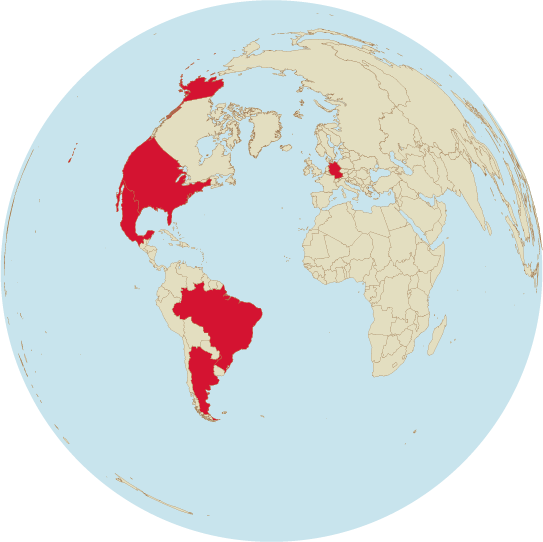Project B03 (2018-2021)
International Complementarities in the Development of the Welfare State. The Transatlantic Sphere (1870–2020)
 In this project we investigate the complementary development of social policy in several states under conditions of intensified global economic interdependence. We focus on the relationship between transatlantic trade and social policy. We systematically investigate how the respective interests of voter groups and political parties arising from economic interdependencies translate into state policy according to political conflict and cooperation mechanisms and how they thus shape the specific institutional profile of the respective welfare states and political economies in the long term.
In this project we investigate the complementary development of social policy in several states under conditions of intensified global economic interdependence. We focus on the relationship between transatlantic trade and social policy. We systematically investigate how the respective interests of voter groups and political parties arising from economic interdependencies translate into state policy according to political conflict and cooperation mechanisms and how they thus shape the specific institutional profile of the respective welfare states and political economies in the long term.
The project’s central research question is: To what extent has the horizontal economic interdependence between states in the Americas and Western Europe led to the formation of complementary welfare state regimes and political economies and which redistributive coalitions were behind these developments? Complementarity refers to differences in the institutional development of the political economies that are mutually interdependent. The central causal mechanism is the developing economic division of labour, which is politically reflected in different redistributive coalitions. The project will present these coalitions in a historical context with respect to political parties and in a contemporary context with respect to the electorate. The central topic of the project is: How, through the international division of labour, i.e. comparative cost advantages, do the institutions of the welfare state develop complementarily to each other – guided by political processes – and how do they mutually stabilize each other within their differences. We are thereby presenting a distinct alternative explanation to that proposed, for example, by the convergence notion of modernisation theory.
On the one hand, the project reconstructs the political and especially social and trade policy related reactions to crises in North America and Western Europe before the Second World War. Looking at the period after 1945, on the other hand the project expands its perspective to include the economic integration of South America and its industrialization strategy as well as current conflicts in trade policy. The investigation will focus on the interaction between – foreign trade-oriented – societal interest groups and their political mediation in the multiparty systems of Western Europe, the two-party system in the USA and the clientelistic presidential systems found in Latin America that all have different capacities to represent local versus "functional" interests. The aim of the project is to develop a concise theoretical framework that is compatible with the Varieties of Capitalism (VoC) approach and is valid for the reciprocally influencing formation of the West European, Latin American and North American welfare states. In doing so we can systematically extend an approach that previously focused on just Western Europe. Methodologically, we combine historical-comparative case studies, quantitative analyses at the macro-level and survey data at the micro-level.













